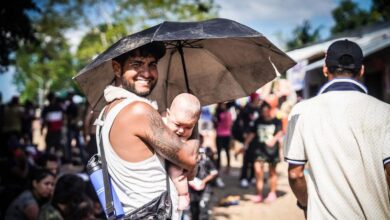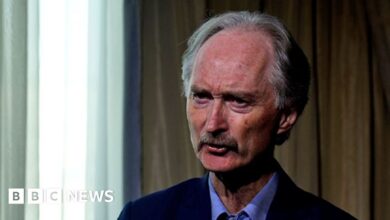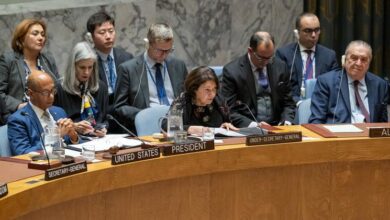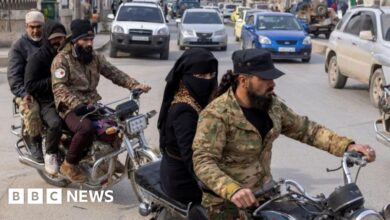Iraq: Security Council briefing on key milestones and ongoing challenges
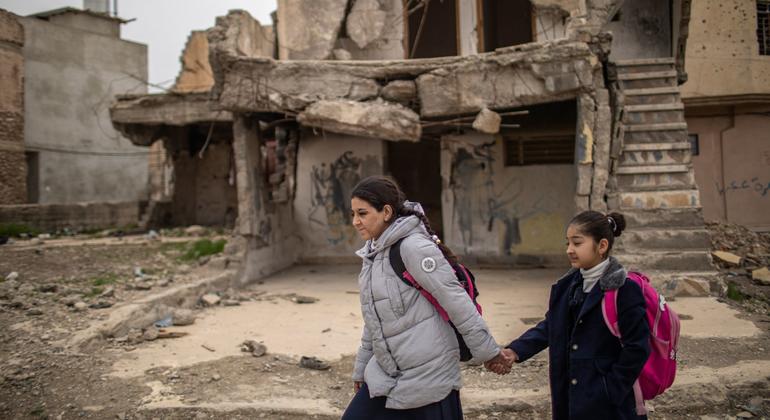
“As you have heard many times, Iraq today is not the same as the Iraq of 20 years ago, or even 5 years ago. Iraq today is more secure, stable and open, despite the many obstacles the country faces,” Mohamed Al Hassan said during his first briefing with ambassadors.
Special Envoy, who also heads the United Nations Support Mission in Iraq (UNAMI), expressed confidence that the country “has the ability to overcome the crisis and face challenges towards a safer, brighter and more hopeful future”.
National census, major investment
Mr Al Hassan outlined recent milestones, starting with the successful conduct of the national census last month – the first to include the semi-autonomous Kurdish Region in the south. north, since 1987.
Preliminary results indicate that Iraq’s population has nearly doubled in the past 30 years, exceeding 45 million peopleand “decision makers can now plan based on reliable facts and figures.”
Important political appointments
Another important development was the election of a new Chairman of the Council of Representatives of the Iraqi Parliament in October, “after a gap year and many unsuccessful attempts”.
In addition, Prime Minister Mohammed Shia Al-Sudani continues to invest in major infrastructure projects across the country, including the construction of roads, bridges, schools and transportation networks.
Promote peace and regional integration
“In the ‘burning’ region, the Iraqi Government shows its strong determination to help the country escape the increasingly widespread regional conflict.At the same time, we maintain our stance as a strong voice for peace and stability in the region,” he continued.
The prime minister “has repeatedly called for an end to tensions in the region, stressing the need to respect Iraq’s sovereignty and territorial integrity.”
Furthermore, looking beyond the current conflicts, the Government is also making efforts to identify Iraq as an important corridor for transportation, energy and trade, promoting regional partnerships.
“Such initiatives highlight Iraq’s efforts to promote regional integration and prosperity,” he said.
Progress in the Kurdistan region
Mr. Al Hassan also emphasized the “positive progress” achieved in the Kurdistan Region, where parliamentary elections were held on October 20 “after two years of prolonged negotiations and delays”, thus reestablish the legitimacy of its institutions.
UNAMI provided electoral support to a process involving more than two million people. Voter turnout reached 72% – an increase of 12% compared to previous electionsand women won 31 out of 100 seats in parliament, exceeding the minimum quota of 30%.
“As negotiations between political parties on the formation of a new regional government are underway, Political parties have a responsibility to give women access to political positions and a seat at the table for them.he said.
Furthermore, the Prime Minister’s visit to the regional capital Erbil after the election “is an important step to promote joint dialogue to resolve many important issues between the two sides.”
Corruption and threats to women’s rights
However, Mr. Hassan said that these positive developments “are limited by the threat posed by persistent and systematic corruption despite the Government’s efforts to tackle them”.
He emphasized the need for “comprehensive changes and reforms to enhance accountability, build capacity, improve transparency and strengthen governance systems,” adding, “I absolutely I truly believe that the Government is taking promising steps in this direction.”
“While strengthening state institutions to tackle corruption is important,” he said.Strengthening state institutions and promoting and supporting human rights are more important in a country that is gradually emerging from its dark past.” This requires strong institutions to protect people’s basic rights and freedoms.
Debate about marriage law
He noted that there has been much public debate and international attention around proposed amendments to the Personal Status Law, which would have far-reaching implications for women and girls.
Deputy Secretary General of the United Nations Amina Mohammed recent observations that the provisions include reducing the legal age of marriage for girls from 18 years old to 9 years old. UNAMI has cooperated extensively with Iraqi stakeholders on draft.

At the Jeddah Rehabilitation Center, Iraq, the UN Secretary-General met those returning from Al-Hol camp in northeastern Syria, where many Iraqis, Syrians and third-country nationals – mainly women and children – are still trapped.
Evacuees ‘deserve better’
Turning to other issues, Mr. Al Hassan said the impact of the Da’esh terrorist group is still evident in the camps that hold thousands of displaced people, mainly members of the Yazidi minority community. He witnessed these harsh living conditions firsthand.
“That is unacceptable for Iraq. Iraq can do better,” he said. “I am sure that Iraq will be able to provide better living conditions for those who were victims in the first place. My heart and solidarity go out to the Yazidis and others who have been displaced over the years. They deserve better.”
The Prime Minister’s decision to establish a National High-Level Committee in consultation with the United Nations to address the migration issue marks a step in the right direction but is not enough. He called on Iraq to invest specifically in creating conditions for the Yazidi and others displaced to return home.
Repatriation from Syrian camps
“And let’s not forget the Iraqi nationals still at Al Hol camp in northeastern Syria,” he added, referring to the site where thousands of people of various nationalities, including children, are being held. held because of alleged ties to Da’esh.
Although Iraq is one of the very few countries making efforts to repatriate citizens, again More action is needed to accelerate returns from “hell-like conditions” there.
“We have renewed commitments from the Iraqi Government and institutions…. to repatriate Iraqi citizens from Al Hol and other camps in northeastern Syria, hopefully before the end of 2025,” he said, calling on other countries to follow suit.

